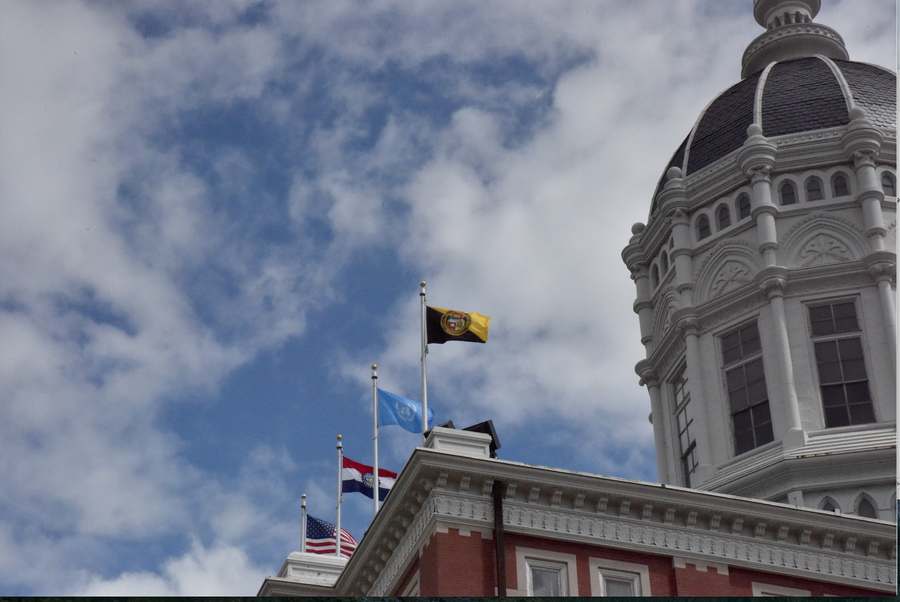Garnett S. Stokes, provost and executive vice chancellor for academic affairs, formed a Task Force on Academic Program Analysis, Enhancement, and Opportunities on June 30, taking another step to evaluate MU’s budget decisions.
During the initial phase, which began with several meetings in July and August, the task force has been collecting data relevant to academic programs’ success and progress in order to prepare a general outline and get a sense of where programs stand. On Sept. 1, that outline was released to relevant parties involved and will be released publicly shortly, said Dr. Cooper Drury, co-chair of the task force and associate dean of the College of Arts and Sciences.
The goal of the task force is to make recommendations “regarding areas of future investment, potential consolidations, and in some cases, program discontinuance” after analyzing all of MU’s academic programs, according to a press release.
“There are three general goals: Where are areas that we can invest? What are our strengths, our areas of growth?” said Dr. Matthew Martens, co-chair of the task force and faculty fellow for academic programs for the Office of the Provost. “Next, where are our areas that we might be able to combine? Do we have overlap, do we have programs in areas that are kind of doing similar things and if you put them together, they get stronger? … And then what are programs that we can’t support anymore, for whatever reason?”
The report “will focus on synthesizing relevant data, identifying principles, guidelines, and metrics that will inform additional discussion regarding our academic programs,” according to the press release.
“There’s quite a bit of quantitative data we can use that can track the number of students graduated, credit hours, stuff like that,” Drury said. “We can track research productivity, grant productivity — but then there are other things that are less tangible that are still extremely important. So we’re figuring out at this stage how we’ll take those things into account, the qualitative measures.”
During the next phase, the task force will speak to faculty, administration and student groups to establish a rapport with all departments and try to understand programs on a more personal and insightful level.
“In the second phase, which we’ve actually started already in terms of meeting with people, our group will get out and meet with various groups to get their ideas, their input,” Martens said. “The next phase … is making sure that along with the perspective of administrators, along with the perspective of faculty, what do students think about this topic, and what are their ideas that we need to take into consideration?”
The final report for the task force will come on Jan. 15 and will contain a final summary recommending specifics about how the MU administration should act on academic programs.
“Our job is to make recommendations,” Martens said. “It’ll be up to senior administrators on campus and in the colleges to end up making final decisions, but it’s going to be important for us to get student input into this process.”
The task force is comprised of 15 faculty members in addition to co-chairs Drury and Martens. Stokes’ first priority when selecting members for the committee was that they had worked with people throughout campus and thus had a good jumping-off point with many units and departments.
“This was a group of people that … has experience from across the campus, not just their one unit, and could in a sense, think or see perspectives of other colleges and departments,” Drury said.
Representatives from a variety of colleges and departments are represented on the task force, although that was not a stated goal by Stokes.
“It’s definitely a diverse group,” Martens said. “It’s diverse in terms of — and I think this was probably important for [Stokes] to consider as well — gender, race, ethnicity, academic background. So when we look at the folks who are on the committee, there’s representation from a wide swath of campus.”
The task force’s first report, when it releases to public, will provide insight into its plan and give a glimpse into the future of many of MU’s academic programs.
“That perspective on where we need to go as an institution, what are our strengths, those sorts of things, we might get some ideas and perspectives that the faculty wouldn’t see or the administrators wouldn’t necessarily see,” Martens said. “We’re looking forward to those conversations.”
_Edited by Olivia Garrett | [email protected]_














